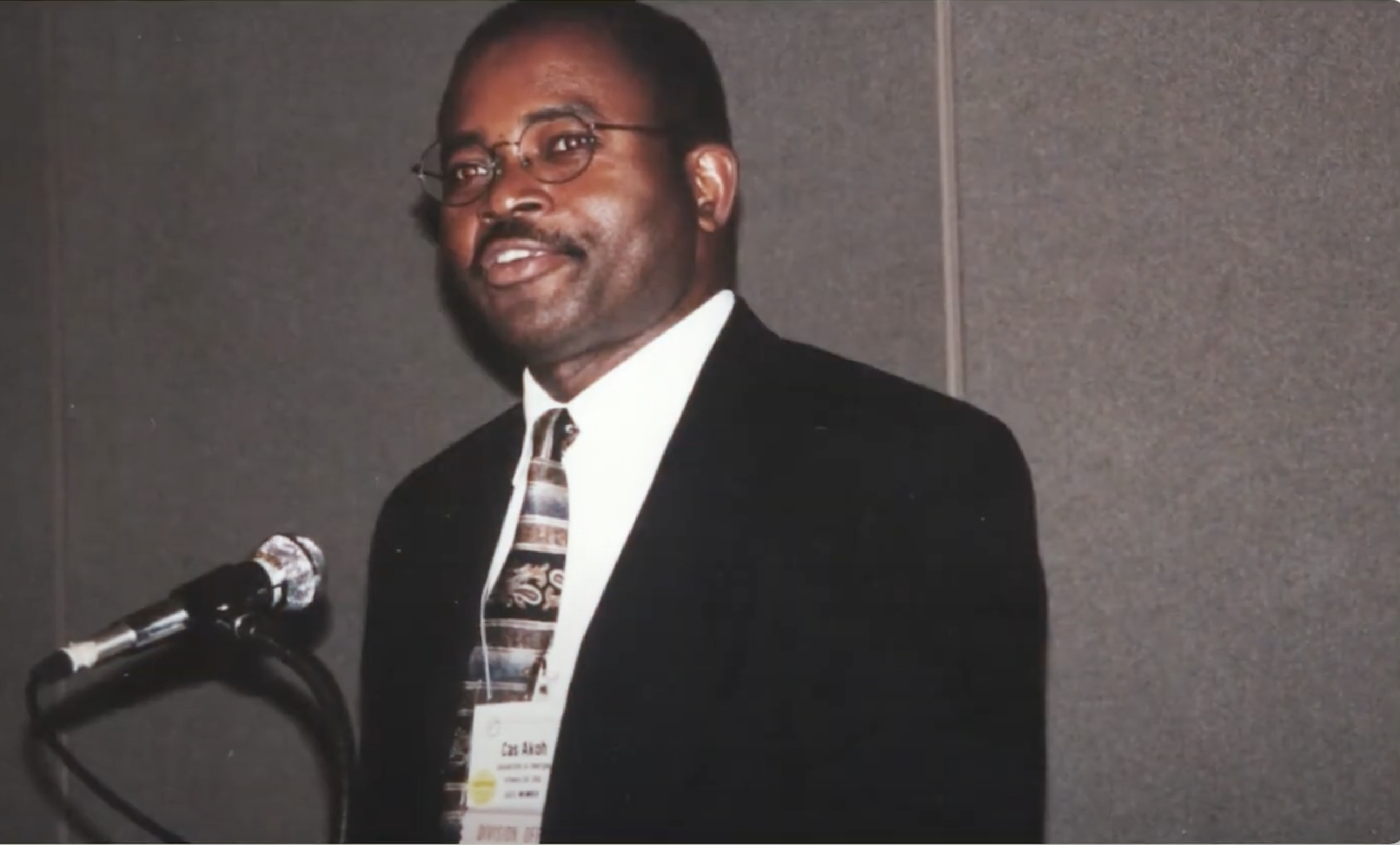Casimir Akoh
With over 30 years of research at UGA, renowned CAES food scientist is named inaugural Highly Ranked Scholar by ScholarGPS

You were recently recognized as a ScholarGPS Highly Ranked Scholar. What does this honor mean to you?
It means that research coming out from our laboratory is being read, used and cited, and is of value to the research community and the food industry who see useful applications and impact of our research and publications.
This ranking is based on lifetime accomplishments and output among currently living and past great scientists in their fields, disciplines and areas of specialization. It is indeed a great honor among those I have received.
What can you tell us about your career path? How did you get to your current position?
After earning a bachelor’s degree in biochemistry from the University of Nigeria, I came to Washington State University to study for my Ph.D. in biochemistry but ended up with a master’s degree in biochemistry before switching to food science.
I earned a doctorate in food science with an emphasis in biochemistry and lipid chemistry. After postdoctoral training in nutritional biochemistry (lipids) at Mississippi State University and Texas A&M University, I accepted my first assistant professor position at Alabama A&M University in lipid biotechnology. I joined UGA in 1992 to continue my work in lipid biotechnology and lipid chemistry. In 2004, I was named a Distinguished Research Professor of Food Science and Technology.
You have been especially productive in studies related to infant formula. What would you most like the public to know about your work in this area?
Infant formula is expected to provide the growing child with nutrients needed for energy, immune function, cognitive development, growth and brain development. Fat is an essential component among these nutrients. The type of fatty acids in infant formula is important in terms of absorption in addition to the benefits mentioned above. When mothers cannot produce enough breastmilk, choose not to breastfeed, or nutrients from the mother are not adequate for the baby, commercial infant formula becomes an alternative.
In America, most mothers do not consume enough foods containing omega-3 and omega-6 fatty acids, which are necessary for proper infant development. To increase the content of these fatty acids in the mother’s breastmilk or in infant formula, our laboratory has designed lipids that contain these fatty acids and palmitic acid in the right proportion for the infant and for the expectant mother in the form of prenatal and postnatal supplements if they choose to breastfeed.
We do this using an enzyme to bind the fatty acids together in the glycerol backbone with 30-60% of palmitic acid at the sn-2 position of the glycerol. We call these designer fats “structured lipids.” Our research on infant formula fat is designed to provide the best nutrition for formula-fed infants.

What are you currently working on, and what is the end goal of that work?
My lab has a U.S. Department of Agriculture National Institute for Food and Agriculture-funded project aimed at producing structured lipids with varying percentages of saturated fatty acids and different fatty acid chain lengths.
These will simulate the content of these fatty acids required to maintain certain physical characteristics for use in different margarine and shortening types without the use of trans fatty acids. Our goal in this project and other related projects is to replace/eliminate the use of trans fats in food products while providing the physical, chemical, storage stability and organoleptic properties of trans-fat-free food products.
What has been your proudest accomplishment in recent years?
There are many and it is difficult to select one. Serving as president of the American Oil Chemists’ Society (AOCS) in 2008-09 during her centenary celebration and receiving the Institute of Food Technologists (IFT) and AOCS highest research awards are certainly worthy of note.

What are you currently working on, and what is the end goal of that work?
My lab has a U.S. Department of Agriculture National Institute for Food and Agriculture-funded project aimed at producing structured lipids with varying percentages of saturated fatty acids and different fatty acid chain lengths.
These will simulate the content of these fatty acids required to maintain certain physical characteristics for use in different margarine and shortening types without the use of trans fatty acids. Our goal in this project and other related projects is to replace/eliminate the use of trans fats in food products while providing the physical, chemical, storage stability and organoleptic properties of trans-fat-free food products.
What has been your proudest accomplishment in recent years?
There are many and it is difficult to select one. Serving as president of the American Oil Chemists’ Society (AOCS) in 2008-09 during its centenary celebration and receiving the Institute of Food Technologists (IFT) and AOCS highest research awards are certainly worthy of note.
Akoh explores Santorini, Greece, in summer 2021.
Akoh explores Santorini, Greece, in summer 2021.
In 2022, Akoh was recognized with an award for his 30 years of service to the University of Georgia College of Agricultural and Environmental Sciences.
In 2022, Akoh was recognized with an award for his 30 years of service to the University of Georgia College of Agricultural and Environmental Sciences.
If you could do anything else, what would it be?
I would relax and enjoy life. That includes following the progress of my former students, visiting scholars and visiting scientists over the years.
What is something your colleagues or students might not know about you — hobbies, interests, secret talents?
I like to garden and watch football (especially the Georgia Bulldogs), basketball, soccer, tennis, Wheel of Fortune, Jeopardy and television news. I like to travel and meet people from diverse cultures and countries. I also inspire, motivate and mentor others and share my philosophy on the best way to succeed.
I believe in uplifting students by awarding them scholarships through my foundation to help them with their education.






